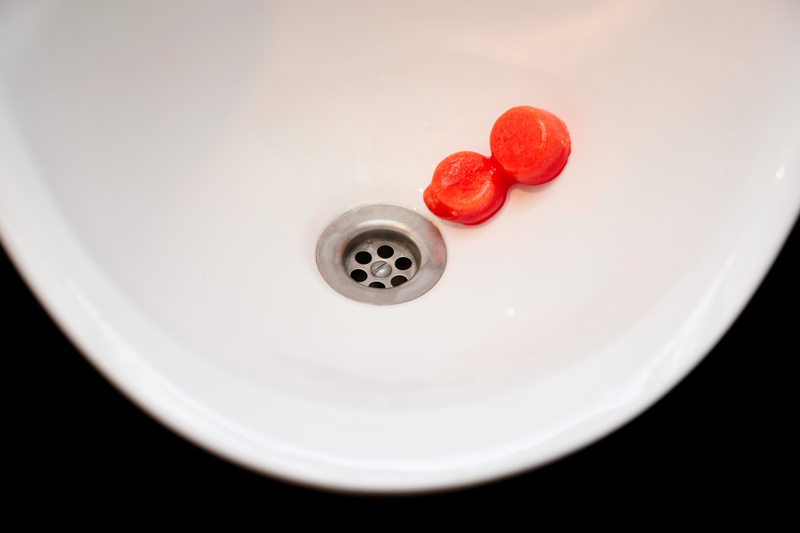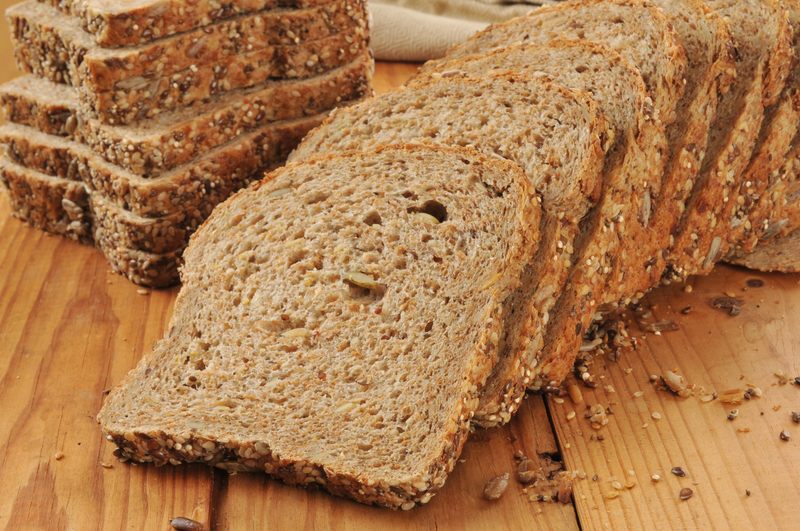Eradicating Scale Stains
Posted on 05/02/2025
Scale stains are a common issue in many households, particularly in areas with hard water. These unsightly marks can appear on sinks, faucets, bathtubs, and other plumbing fixtures. The process to remove them can seem daunting, but with the right approach and tools, you can effectively eradicate scale stains and restore the shine to your surfaces. This article will provide a detailed guide on understanding, preventing, and removing scale stains from various surfaces.
What Are Scale Stains?
Scale stains, also known as limescale, are the result of mineral deposits from hard water. Hard water contains high levels of dissolved minerals, primarily calcium and magnesium. When the water evaporates, these minerals are left behind, forming a white, chalky residue. Over time, these deposits can build up and become difficult to remove.

The Problems Caused by Scale Stains
Scale stains are not just an aesthetic issue; they can also contribute to a range of problems in your home:
- Reduction in Appliance Efficiency: Mineral deposits can accumulate in household appliances like dishwashers, washing machines, and kettles, reducing their efficiency and lifespan.
- Pipe Blockages: Limescale can build up inside pipes, narrowing them and restricting water flow, potentially leading to increased water pressure and potential pipe damage.
- Health Concerns: While not directly harmful, excessive limescale deposits can harbor bacteria, leading to potential health risks.
- Aesthetic Issues: Scale stains are unsightly and can make even the cleanest bathroom or kitchen look dirty and neglected.
Preventing Scale Stains
Prevention is often the best approach when dealing with scale stains. Here are some methods to reduce the presence of hard water and prevent the formation of limescale:
Water Softeners
Installing a water softener in your home can significantly reduce the mineral content in your water supply. Water softeners work by exchanging the calcium and magnesium ions in hard water with sodium or potassium ions, preventing the formation of scale stains.
Regular Cleaning
Regular cleaning of surfaces prone to scale buildup can prevent hard water stains from becoming ingrained and difficult to remove. Wiping down faucets, sinks, and tiles after use can minimize residue.
Vinegar and Lemon Juice
These natural acids can help dissolve mineral deposits before they become a significant problem. Regularly applying vinegar or lemon juice to surfaces can prevent scale buildup. Simply spray the solution onto the surface, let it sit for a few minutes, and then wipe clean.
Removing Scale Stains
If scale stains have already formed, don't worry. There are several effective methods for removing them:
White Vinegar
White vinegar is one of the most effective and affordable solutions for removing scale stains. Its acidic nature helps dissolve mineral deposits. Here's how to use it:
- Soak a cloth or paper towel in white vinegar.
- Wrap the soaked cloth around the affected area (such as a faucet or showerhead).
- Let it sit for at least an hour, or overnight for tougher stains.
- Remove the cloth and scrub the area with a sponge or brush.
- Rinse thoroughly with water and dry the surface.
Lemon Juice
Lemon juice contains citric acid, which can help break down and dissolve scale stains. The method is similar to using vinegar:
- Cut a lemon in half and squeeze the juice onto the stained area.
- Let the juice sit for 10-15 minutes.
- Scrub the area with a brush or sponge.
- Rinse thoroughly with water and dry the surface.
Baking Soda and Vinegar
A combination of baking soda and vinegar can create a powerful cleaning solution that can tackle tough scale stains:
- Sprinkle baking soda over the affected area.
- Spray white vinegar over the baking soda, allowing it to fizz and bubble.
- Let the mixture sit for 15-20 minutes.
- Scrub the area with a brush or sponge.
- Rinse thoroughly with water and dry the surface.
Commercial Descaling Products
If natural remedies are not effective, there are various commercial descaling products available. These products are specifically formulated to dissolve mineral deposits and can be found in most supermarkets and hardware stores. Always follow the manufacturer's instructions for safe and effective use.
Cleaning Specific Surfaces
Different surfaces may require specific cleaning methods to avoid damage while effectively removing scale stains:
Faucets and Showerheads
For faucets and showerheads, you can use vinegar or a commercial descaler. An effective method is to fill a plastic bag with vinegar or descaling solution, submerge the faucet or showerhead in the bag, and secure it with a rubber band. Let it soak for a few hours before scrubbing and rinsing.
Tiles and Grout
For tiles and grout, apply the vinegar and baking soda mixture or use a commercial tile cleaner. Use a stiff-bristled brush to scrub the grout lines, as they can trap a lot of scale buildup.
Glass Shower Doors
To remove scale stains from glass shower doors, a mixture of vinegar and baking soda works well. Alternatively, you can use a commercial glass cleaner designed for removing limescale. Apply the cleaner, let it sit for a few minutes, then scrub with a non-abrasive sponge and rinse thoroughly.
Appliances
For appliances like kettles, coffee makers, and dishwashers, use a descaling solution specifically designed for the appliance. For example, fill your kettle with equal parts water and vinegar, bring it to a boil, let it sit for an hour, then rinse thoroughly. Refer to your appliance's manual for specific descaling instructions.

Maintaining a Scale-Free Home
Once you have removed scale stains from your surfaces, it's essential to maintain them to prevent future buildup. Here are some maintenance tips:
Regular Cleaning
Clean surfaces regularly to prevent the buildup of mineral deposits. Wipe down sinks, faucets, and tiles after each use, and clean appliances according to the manufacturer's recommendations.
Use a Water Softener
If you live in an area with hard water, investing in a water softener can significantly reduce the presence of minerals in your water supply, preventing scale stains from forming in the first place.
Install Filters
Installing filters on your faucets and showerheads can help reduce the amount of minerals in the water, preventing scale stains. These filters are relatively inexpensive and easy to install.
Regular Descaling of Appliances
Descale household appliances like kettles, coffee makers, and dishwashers regularly to prevent the buildup of mineral deposits that can reduce their efficiency and lifespan.
Conclusion
Scale stains can be a nuisance, but with the right preventative measures and cleaning techniques, you can effectively eradicate them from your home. Regular maintenance, the use of natural cleaning products like vinegar and lemon juice, and the occasional use of commercial descaling products can keep your surfaces clean and stain-free. By understanding the causes and solutions for scale stains, you can maintain the beauty and functionality of your fixtures and appliances, ensuring a cleaner and more efficient home.
Implement these practices, and you'll find that eradicating scale stains becomes a manageable and straightforward task.
Latest Posts
Transform Your Kitchen with Pro Oven Cleaning Tips
The Surprising Link Between Home Cleanliness and Mental Wellbeing

 Company name:
Company name:  Telephone:
Telephone:  Opening Hours:
Opening Hours:  Street address:
Street address:  City:
City:  E-mail:
E-mail:  Web:
Web:  Description:
Description: 







